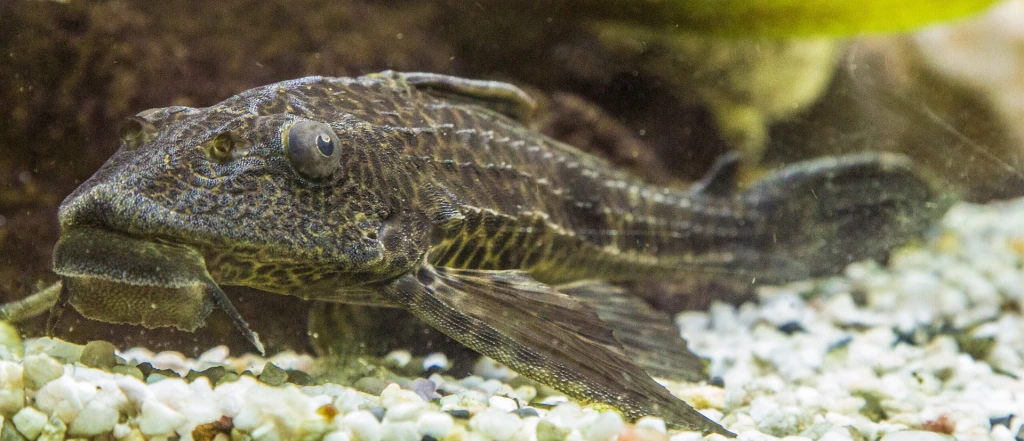It’s a story I’ve sadly heard too many times…
I’m on the phone with an amazing woman who has a heart of gold and lots of love to give…but also has a lack of knowledge about how to date effectively (and safely).
It usually takes a while, but eventually she works through her embarrassment enough to admit that she’s lost money ー often tens of thousands of dollars ー to someone she met online and thought she was in a relationship with.
Now before you tell yourself that would never happen to you, let me say that far too many women I’ve worked with have had someone pretend to be someone they’re not online.
So please humour me and read this…because it may save either you or someone you know from heartbreak and financial loss.
A multi-billion dollar industry
Romance scams (also known as catfishing) is now a multi-billion-dollar industry, and approximately 10% of online profiles (both on dating apps and social media) are reported to be fake.
The U.S. Federal Trade Commission estimates that in 2022 alone, 70,000 Americans lost $1.3 billion to romance scams. In Canada, close to 1,000 Canadians lost $50 million in 2021 (approximately $54,000 on average).
Both amateur and expert criminals around the world prey on lonely people (women and men), telling them what they want to hear.
With women, a catfisher usually appears as a handsome man with a good career who says “you’re beautiful” and “I love you” often and quickly (appealing to a woman’s desire to be validated and loved). With men, they appear as young women sending sexy pics and telling them they’re handsome or hot (appealing to a man’s desire to feel young and manly again).
Once they’ve gotten your attention, they love bomb you and message you frequently, creating an online “relationship” with you to build your trust. They may even send you a gift so you think they’re real. Eventually, they ask you for money, with some kind of convincing and urgent reason.
It’s important to note that there are good people online, and many committed relationships (up to 40%) do start online.
So it’s not necessary to become hypervigilant or paranoid or avoid online dating altogether. Instead, learn the signs to watch for so you can protect yourself (and pass this information on to your single friends so they stay safe too).
Who is vulnerable to catfishing?
Recent research is starting to reveal why some people fall prey to romance scams and others do not.
Some of the things that make a person more vulnerable to romance scams include:
-
- Emotional vulnerability – Women who are recently widowed or divorced, live alone and are experiencing loneliness and isolation are often craving human connection and are more vulnerable to flattery and early promises of love.
- Insecure attachment – People with an anxious-avoidant attachment style (who have a strong desire for closeness but also a fear of abandonment) are prime targets because they are less likely to question love bombing and more likely to feel safer at a distance (accepting excuses for why the person can’t meet in person).
- Cultural factors – Women are conditioned to be more nurturing and trusting, and to self-sacrifice in the name of love, so they empathize with pleas for help.
- Low self-esteem – People who experienced childhood trauma, abuse & neglect are more likely to have low self-esteem and poor boundaries, leading them to overlook and accept inconsistent behaviour.
- Lack of knowledge – Many women begin dating without even a basic understanding of how to stay safe, let alone an effective strategy for how to make wise decisions and choose the best partner.
Common catfishing signs

Here are some common signs you may be dealing with a catfisher:
1. They look “too good to be true” – If they are drop-dead gorgeous and all their photos appear to be professionally taken, the photos are most likely stolen from someone else. While a person may have a professional photo or two, most people get their friends to take photos for them (or take selfies). Another give-away is that aside from the pro shots, they have few or no candid photos showing them in everyday life (e.g. with their pet, playing sports or gardening). And if you ask for a recent photo, they can’t (or won’t) provide one.
2. They have a limited social profile – If your potential love interest doesn’t have a lot of friends or posts showing interaction with others on Facebook or other social media, or their profile looks new and has little history, they are likely not real.
3. They love bomb you – They get serious way too fast, want to be exclusive without having met, are over-eager to communicate with you often, and make early promises of love, affection and even marriage. They listen closely to what you say you want and say they want all the same things, telling you what you want to hear so that you believe you’re in love.
4. They avoid meeting in person – Probably the most classic sign of a catfisher, they say they can’t meet you in real life and seem to have a good excuse (working on an oil rig or diamond mine, on a military posting, an overseas doctor doing charity, currently travelling for a lengthy period, etc.). They usually avoid video chats as well (claiming poor Internet connection), wanting to stick to texting/messaging and maybe the occasional phone call.
5. They have poor English – Many of these scams are run from foreign countries, so English is often (though not always) their second language, and their spelling/grammar may be poor.
6. Their stories lack details or are inconsistent – When you ask them about their life or history, their stories seem vague, with few personal details and odd inconsistencies (e.g. they say they’re from a certain city but can tell you little about it).
7. They ask you for money – The inevitable goal of catfishing is to extort money from you. They will make up an emergency or sob story to convince you their situation is real. Common reasons include: medical (needing money for a prescription or surgery), travel (needing money to come see you), for a child (medical emergency or custody/divorce issues), for legal fees, they need help cashing a cheque, they will show you how to invest your money (like in cryptocurrency), and so on. Don’t fall for it! Never send money (in any form) to a stranger (no matter how well you think you know them / how long you’ve been chatting online).
How to avoid being scammed

Some tips to avoid falling prey to a romance scam:
1. It’s not a relationship if all you’ve done is chatted online. Understand that the real purpose of online dating is simply to connect with people you otherwise wouldn’t. It is not a good way to form a relationship. That must be done in real life…yes, even if you’re shy or introverted!
2. You can’t know someone is real until you’ve met them in person. And a phone call doesn’t count – they can hire someone to talk to you. So don’t spend weeks and months chatting online. Move to a real date in person within a week to two weeks tops. If they won’t meet you in real life (they usually have a good excuse like work, travel, etc.), stop communicating with them and move on to someone who IS available.
3. Don’t get swept up in praise and early promises of love. Learn to love and validate yourself so that you’re less vulnerable to someone who’s paying positive attention to you. (For more on this, check out my free training called Loving without Losing.)
4. Research your date – Do your research to make sure this person is who they say they are. Google their name (and city if it’s a common name). Look them up on Facebook and LinkedIn. Do a reverse Google image search on their photos.
5. Trust your instincts – Whether meeting live or online, trust your gut. If something doesn’t feel right, it probably isn’t. You don’t need to know the reason why…trust yourself and move on!
6. If someone asks you for money DON’T GIVE IT TO THEM!!! It doesn’t matter how good their reason is, how little the amount is at first, or how much you think you love them. (See below for more on what to do instead.)
7. Stop over-giving. Don’t share your heart so eagerly with someone you haven’t even met yet. Don’t give money to a stranger. Learn to heal trauma from your childhood and past relationships and raise your self-esteem so that you’re not so vulnerable to these types of people. You are a precious gift, so please start treating yourself like one, and stop giving yourself away so easily to people who don’t deserve you!
What to do if you’ve been catfished
If someone asks for money, immediately end all communication and block them. Don’t confront them – this can result in them luring you back, harassing you with threats, or in calling you at a later date pretending to be police or an investigative agency to get MORE money from you.
Save any records of communication with them, then report them to local police and to the Canadian Anti-Fraud Centre. (See Protect yourself from scams and fraud for more on what to do if you’ve been scammed.)
Then be sure to report them to the social media or dating site you were using as well, to help protect other innocent people from becoming victims.
Additional resources
- Why is dating so hard?
- Protect yourself from scams and fraud (Canadian Anti-Fraud Centre)
- I love you, now pay up: Understanding Romance Scams (Psychology Today)
- Unlucky in love? Why taking a break from dating can help you find love sooner
Empowered dating
If you have a pattern of attracting the wrong partners and you want to know how to change your dating experience (or how to even get started), I invite you to a FREE virtual training called Finding Love in the Modern Age.
During this 40-minute online masterclass, you will learn:
- How modern dating has changed since your 20s
- The 10 biggest mistakes women make when looking for love
- The surprising reasons why women settle
- How to know if you’re ready to date (and what to do if you aren’t)
- What you need to succeed in love!
Stay safe out there!
❤ Karen
Share your thoughts…


Reblogged this on Silver Linings and commented:
Adding some updates to this very important topic, to help protect you from online dating scams!
Thank you so much for your information. I will use it. Yes you are right! I do deserve to treat myself better and use my gut feeling. I’ve been hurt so deeply by so many abusive men in my life I think I’m still too vulnerable. I’m a strong independent women and I’m fine on my own. I’m confident I’ll meet the right man but in person next time.